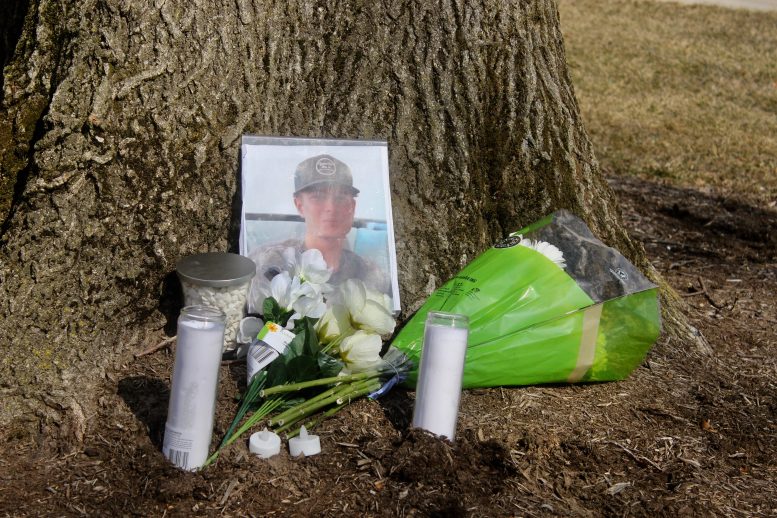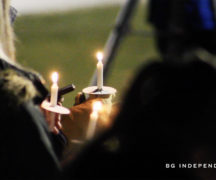By DAVID DUPONT
BG Independent News
Three students have been permanently expelled from Bowling Green State University because of their involvement in the hazing that allegedly resulted in the death of sophomore Stone Foltz in March.
The university, through Alex Solis, deputy chief of staff and university spokesperson, issued a statement today (July 30) announcing the discipline against 21 students, none of whom were named, who were determined to have been involved in the incident on March 4 at an off-campus house. Foltz died in a Toledo hospital several days later having been kept alive on life support to facilitate the donation of his organs.
In addition to the three expulsions, the university is also suspending 17 students for terms of three to seven years. One student received a deferred suspension.
“These resolutions are representative of a range of involvement in and responsibility for the events on March 4, 2021,” according to the statement.
“At the beginning of the investigation into the incidents involving the tragic death of student Stone Foltz, BGSU committed to a fair, thorough and accountable disciplinary process. Today, the University has concluded that process. All 21 students charged were found responsible for a total of 83 violations of the BGSU Code of Student Conduct, including hazing, harm to and endangering others and furnishing alcohol.”
BGSU also released the report of the Presidential Working Group on Anti-Hazing.
The report is wide-ranging set of policies and procedures for enforcing a zero tolerance approach to hazing on campus. It reflects both the increased criminal penalties included in Collin’s Law, the anti-hazing principles set forth by the Inter-University Council, and the recommendations of Dyad Strategies, the consultant hired by BGSU.
The seven-member working group chaired by Dean of Students Chris Bullins and Maureen Wilson, associate dean of the College of Education and Human Services, developed the 14 recommendations.
They include:
- Requiring all university personnel, including consultants and volunteers, to report instances of hazing.
- Banning the admission of any student “convicted of criminal hazing for at least one year from the date of the conviction.”
- Rewriting the agreements between the university and national Greek organizations “to clarify and underscore” the importance of oversight of local chapters.
- Establishing closer collaboration between the BGSU Police Department and the Bowling Green City Police Division.
- Making anti-hazing education and training for everyone involved in Greek organizations, including advisors and volunteers, mandatory.
- Calling for collaboration among the Department of Athletics, the College of Musical Arts, and the Dean of Students office to develop a targeted anti-hazing plan for varsity athletes, club sports, and marching band.
- Strengthening the role of parents and outside groups in addressing the problem.
- Addressing the social culture of off-campus houses.
- Restructuring within the office of Fraternity and Sorority Life.
The report calls for two new positions – a coordinator of student conduct and a hazing prevention coordinator.
Chief Health Officer Ben Batey was appointed as acting hazing prevention coordinator. A search will be conducted to fill the student conduct coordinator position.
Rex Elliott, Cooper Elliott, the Foltz family’s attorney for the issued the following statement in response to the disciplinary actions: “The Pi Kappa Alpha hazing ritual that took Stone Foltz’s life last March has far-reaching consequences for its participants, as it should. Bowling Green State University found all 21 students charged with Student Code of Conduct violations to be responsible for their actions. Accountability and consequences are important steps in eradicating hazing culture on college campuses, but more needs to be done. The only solution is to institute zero-tolerance policies that prevent hazing — organized abuse — from ever occurring. No other student should face humiliation, injury, or death.”
Seven students, all active or former members of the Pi Kappa Alpha fraternity, involved in the alleged incident are facing criminal charges. All pleaded not guilty when arraigned in Wood County Common Pleas Court in May.
The Foltz family has filed a wrongful death civil suit in Franklin County against 10 named individuals and other unnamed “John Does.” Foltz was from Delaware.
Pi Kappa Alpha has been banned from campus.
–





